By David F. Rooney
Revelstoke’s first National Aboriginal Day Storytelling Festival got off to a modest start this weekend but that didn’t dampen the enthusiasm of participants.
The crowd of local residents who attended the festival at Centennial Park was modest but attentive and appreciative of the native leaders and storytellers who gathered in Revelstoke to mark the occasion.
“I was just going to stay here for a while, but this is really interesting,” said Poppi Reiner, who attended just about everything on offer Saturday.
Some local parents brought their youngsters down to the festival and it was evident from the giggles emanating from the teepee where most of the tales were told that they truly enjoyed it. But for the most part, attendance was very modest, which was surprising to me because this was a marvellous event for children. If this is repeated next year — and I hope it is — I hope it gets a greater buy-in from local residents, especially teachers. Sure, our local educators are on strike, but I expected to see a bunch of teachers down at the festival. Why teachers? For a couple of reasons:
- Many teachers talk about the First Nations’ role in the development of our country; and
- the whole notion of oral storytelling is a skill that can make teachers more effective in the classroom.
Unfortunately, teachers were under=represented in the small crowd of non-natives that attended the festival.
The storytellers included men and women representing the four Nations that regard Revelstoke as a traditional area: the Sinixt; the Okanagan, the Secwepemc; and the Ktunaxa. The storytellers invited to the festival included Shelly Boyd, Sinixt president of the Inchelium Language and Culture Association, based in Colville, Washington; Kukpi7 Christian, chief of the Secwepemc Nation’s Splatisin Band; Jackie Cole, Metis aboriginal education consultant from the Slocan; Herman Edwards, Okanagan nation Salish language expert; Robert Edward, chief of the Okanagans’ Lower Similkameen band; Jodi Garner Niehaus, a Dene Nation storyteller from Buffalo River, Saskatchewan, who works with the Kelowna School Board;Ralph McBryan a Secwepemc storyteller from the Little Shuswap Band; Melanie Sam, director of the Ktunaxa Nation’s Traditional Knowledge and Language Sector; Virgil Seymour, the Sinixt Nation’s Arrow lakes facilitator from Colville; his granddaughter and young singer Jahmillah Seymour; and Gus Timoyakin of the Okanagan Nation who works in Aboriginal Education for the Vernon School District.
The festival got under way on Friday with a workshop on the Four Rs of aboriginal storytelling conducted by Jackie Cole, a Metis resident of the Slocan area who acts as an Aboriginal education consultant.
The Four Rs are: responsibility; respect; reciprocity; and reverence. All traditional First Nations tales share these four characteristics, she said. That was evident in the tales told under the teepee that was erected at Centennial Park for the festival.
The Revelstoke Museum’s Cathy English said the festival will likely be repeated next year when the museum’s first permanent First nations exhibit is unveiled.
The exhibit is being created with a $6,500 grant from the Vancouver Foundation and matching funds from the museum. It will describe and mark the First Nations presence and extensive use of this area, which contradicts the popular European view that aboriginal peoples did not have a presence here.
The museum’s Saturday morning session was well-attended, said organizer Laura Stovel, who expressed satisfaction with the overall result.
“We wanted to reach between 200 and 300 people,” she said. “This was an important first step. The people who came really benefitted from it.”
Here are some photos from the festival, followed by two videos. The first shows a prayer sung at the opening by Sinixt leader Shelley Boyd and a song sung by her granddaughter Jamillah Seymour. The second video shows Dene storyteller Judi Garner Niehaus telling a story accompanied by children manipulating her charming puppets:
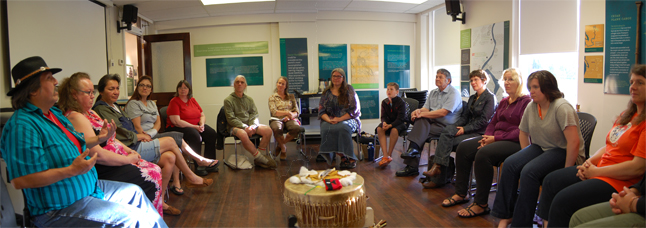
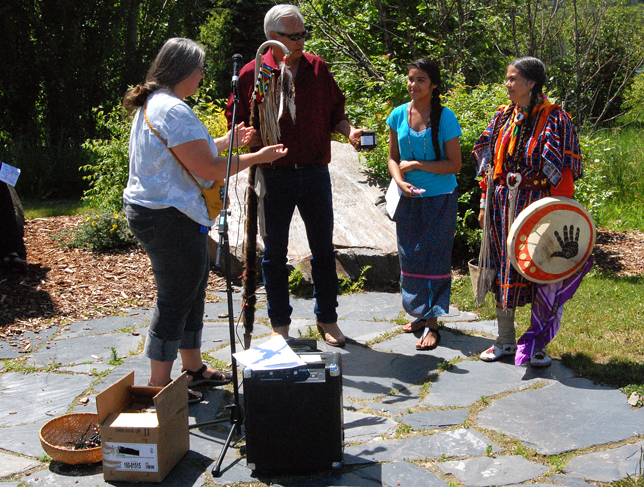
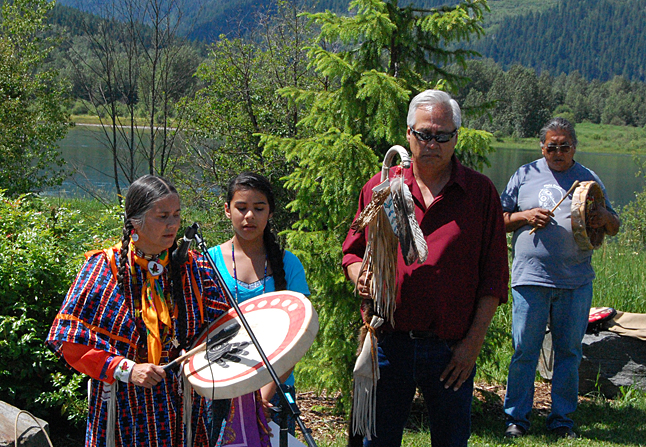

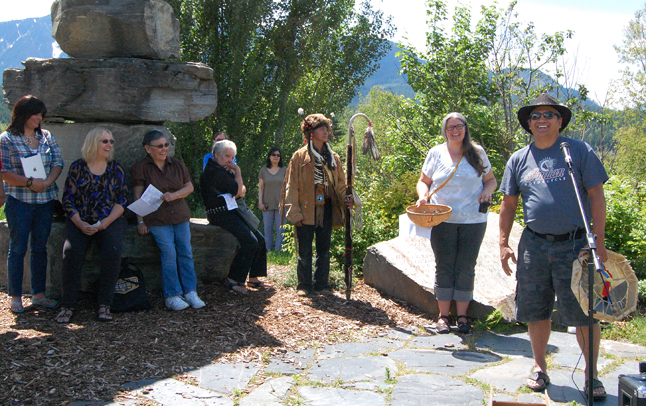
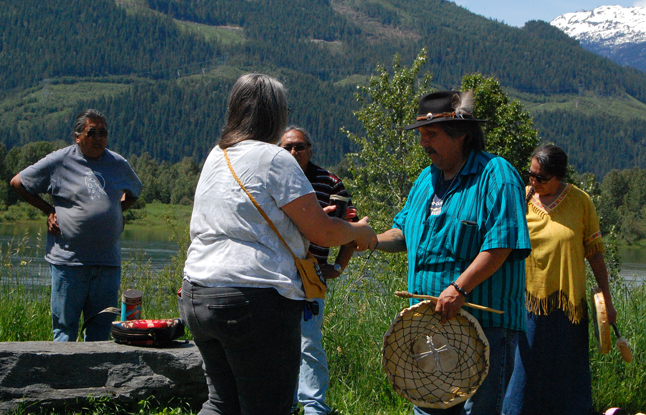
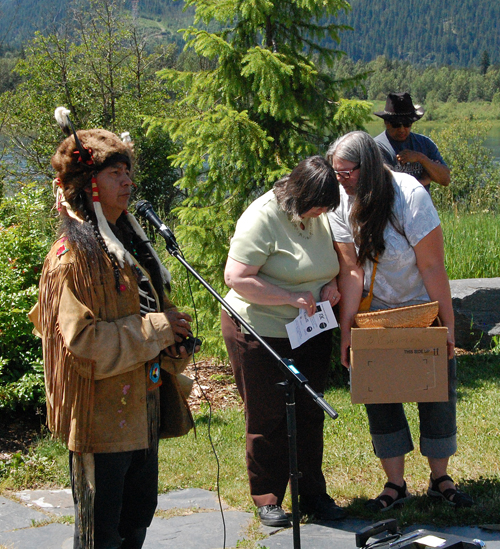
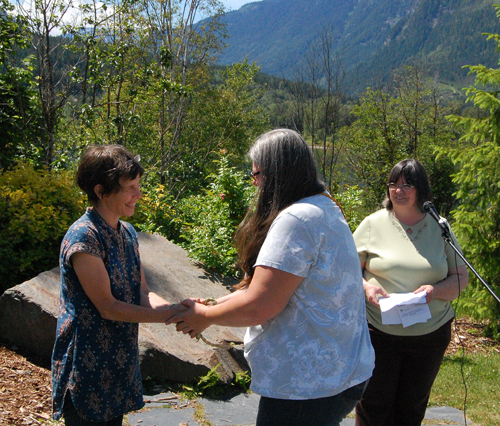
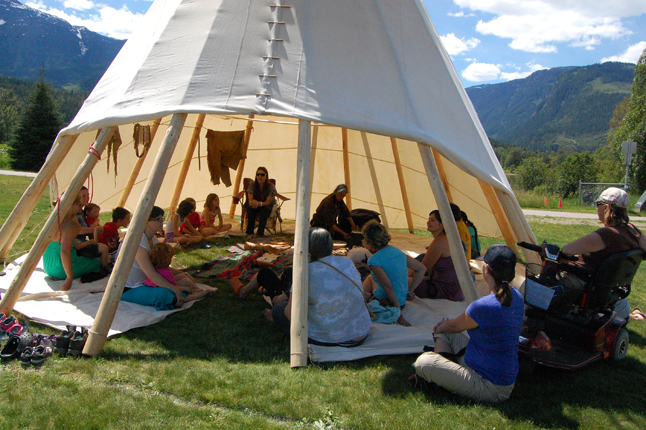
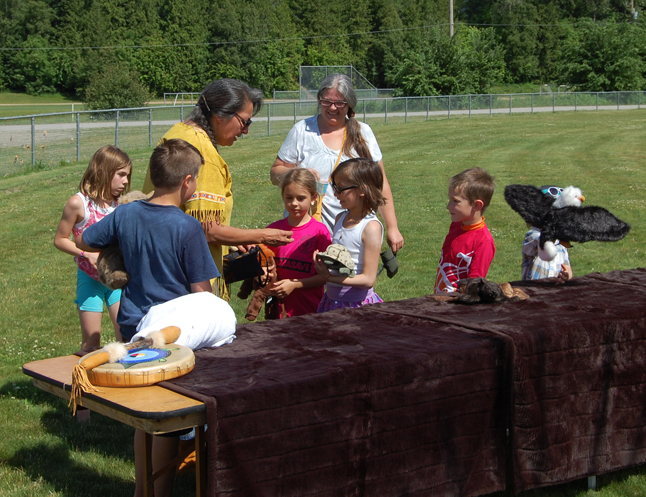
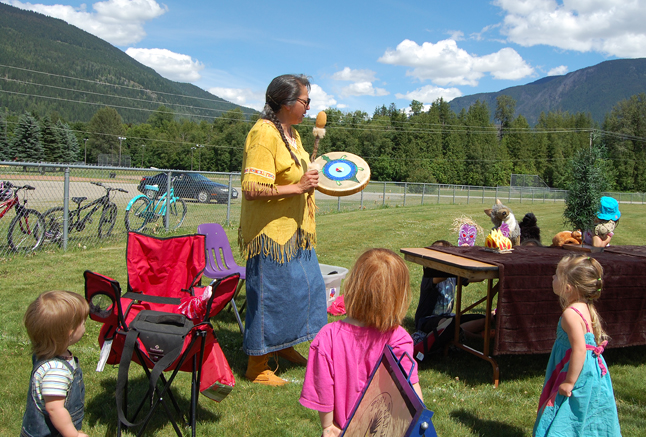
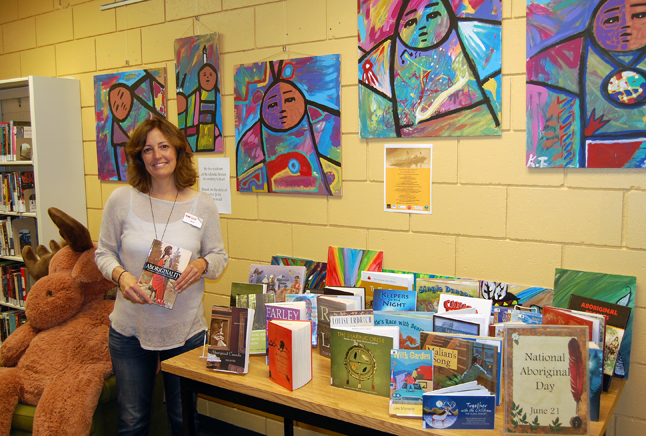
Here are the videos:



